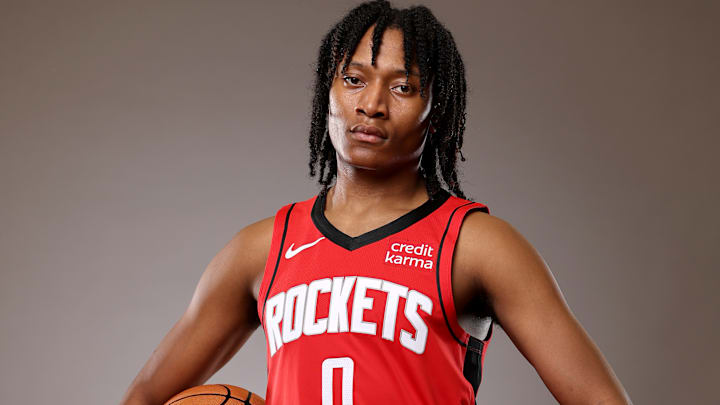
Projecting TyTy Washington
As the 29th pick, TyTy Washington’s NBA future is far from certain. The hit rate on players having any semblance of a productive NBA career is a little better than 50%. From the 1976 to 2020 draft, 20 out of 44 selections have produced under 2.0 career win shares. A few more recent draftees may eclipse that mark, but reaching 2.0 career win shares is an incredibly low bar to hurdle.
However, no matter where they’ve been selected, every Kentucky guard drafted since 2015, except for Tyler Ulis (a 5’10 guard selected with the 34th pick), still remains in the NBA. Considering their average draft position has been the 22nd pick, ranging from fifth to 51st, the fact that 11 out of 12 have not only stuck but been productive NBA players suggests that there is something different about Kentucky guards.
To project TyTy Washington’s early career, I took the 12 Kentucky guards selected since 2015 and averaged their final college season statline and each of their first four (if applicable) seasons in the NBA. The results were extremely encouraging. The average Kentucky guard averaged 14.8 points, 2.9 assists, and 3.9 rebounds on 48.4% shooting on 2-pointers and 35.9% on 3-pointers in their final collegiate season.
Washington’s college stat line of 12.5 points, 3.9 assists, and 3.5 rebounds on 49.6% shooting on 2-pointers and 35% on 3-pointers lines up nicely with those marks giving credence to the next part of the projections– how Kentucky guards faired in the NBA.
Kentucky guards drafted since 2015 (12 total players) from College to the NBA pic.twitter.com/Ff0pOQp79y
— N.B. Lindberg (@nblindberg) July 21, 2022
Unsurprisingly, as rookies, Kentucky guards saw their production fall from their final collegiate season. However, most of that came from a drop in minutes, as their efficiency remained strong with only a 1.7% drop in 2-point and 3-point shooting efficiency.
After adjusting to the NBA, the average Kentucky guard regained almost all of their 2-point efficiency from college and saw a slight bump in 3-point shooting from their rookie season. Their points per game almost equaled their collegiate mark, and their assists and rebounds per game exceeded it. Pairing an increase in efficiency and volume is a difficult task, but just about every player in the sample improved their scoring and one of their 2-point and 3-point shooting, if not both.
Years three and four for Kentucky guards are where things get exciting. Averaging 18.4 points and 19.6 points per game, regardless of efficiency, are impressive marks. The fact that it also corresponded with an increase in 2-point shooting and assists only adds to the idea that Kentucky guards flourish in the NBA.
If TyTy Washington were to track like the average Kentucky guard, he could be a legitimate high-end contributor and burgeoning All-Star by his fourth season.
TyTy Washington's projected college through first 4 season stats based upon Kentucky guards selected since 2015 pic.twitter.com/WvchT3hgUu
— N.B. Lindberg (@nblindberg) July 29, 2022
These projections are incredibly crude and inexact. They shouldn’t be taken as destiny, no projection should, but they do capture an interesting trend. Kentucky guards, by their third NBA season, usually outproduce their college numbers. That is no small feat considering the massive jump in talent going from college to the NBA.
TyTy Washington Jr. may live up to the average career of a 29th pick and max out as a useful bench player. But if he lives up to the average career of a Kentucky guard, then the Rockets may have ended up with the steal of the draft. He’s the Rockets’ rookie third-wheel right now, but chances are he’ll join Bari and Tari as a core contributor to the next great Rockets team.
